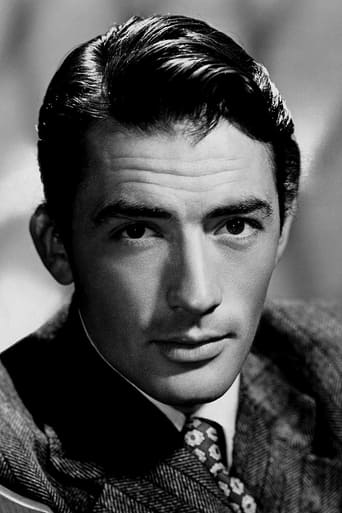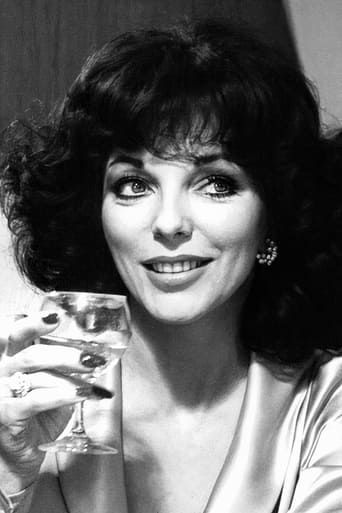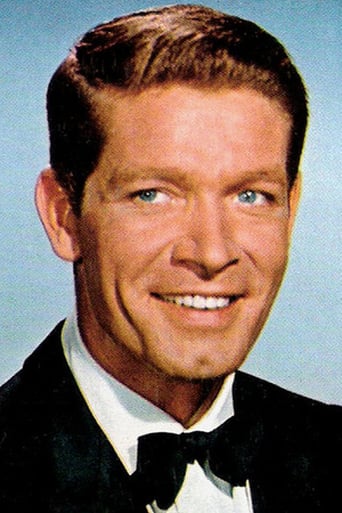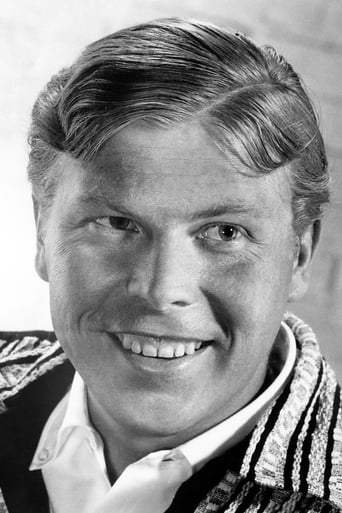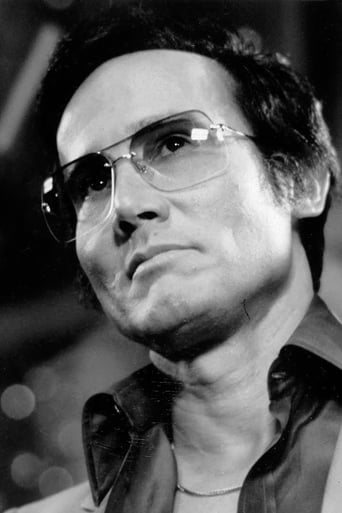vincentlynch-moonoi
When I read a brief synopsis of this film I thought, oh my, that old plot again? I'm surprised Gregory Peck fell for it. But, it's difficult for me to resist a Gregory Peck film, so I watched it and was pleasantly surprised. Yes, it is another revenge Western, but the script is much better than average, the acting excellent and -- I thought -- realistic, and the settings are often quite stunning.Let's begin with the plot. How many times have we seen the basic plot? Group of men kill man's wife...he seeks revenge. Well, this story goes a little beyond that basic plot. It involves a lovely village with good people. It involves mistaken identity. It involves a past love. It involves repentance. The only problem I had with the plot was that -- at the end -- there is no need for repentance. The outlaws killed were guilty of attempted murder, one was guilty of rape, another guilty of theft, all were guilty of escaping from jail. They were not innocent...they paid a price.In terms of the acting, Gregory Peck is marvelous; of course, wasn't he always? The big surprise came with Joan Collins...I guess she could actually act...at least on occasion...and for brief moments. Stephen Boyd was a nasty villain here, and accomplishe dhis acting duty. Albert Salmi was one of the bad guys in a pretty much nothing part. Henry Silva had several very good scenes near the end of the film. Was there some reason that Kathleen Gallant was smiling almost the whole time during her kidnapping. Nice to see Herbert Rudley as the sheriff...a good character actor. Lee Van Cleef, another of the bad guys had one good pre-death scene. Andrew Duggan had one good scene at the end of the film. The oddest casting was Joe DeRita as the fake hangman; DeRita is best known as one of the replacements for Curly in the Three Stooges!I rarely watch Westerns anymore, but this is a good one. Well worth your time.
LeonLouisRicci
By 1958 the Works of Anthony Mann and Budd Boetticher, With the So Called "Adult" or "Psychological" Western had Made Their Mark and an Old Salt Like Henry King was Surely Influenced in This One.He Almost Manages it, but the Old School Hollywood was Just Too Ingrained in the Director and His Capitulation to Heavy Handed Religious Apologetics All But Destroyed This Otherwise Excellent Attempt at Pushing the Western Forward.The Story of Revenge and Rage is Well Done Until the Ending that Becomes Laughable (when Gregory Peck exits the Church). But Until the Sledgehammer Ending Where King and Yordan Beat Us Over the Head with Piety and Priests, it's an Edgy, Sometimes Brutal Display of the "New" Western.The Cast, Led by Peck, are All Pretty Good Featuring Lee Van Cleef, Stephen Boyd, and Henry Silva as the Outlaws on the Run, but Joan Collins is Virtually Background Scenery. Speaking of Scenery, the Cinemascope, Technicolor Landscape is an Attraction and Backdrop Some of the "New" Violence.Other Signs that is One of Those New Fangled Types is the Word "Rape" is Used More than Once and an Actual Rape Takes Place On Screen but Out of Sight and is Rather Unsettling.Overall, this is an Above Average Western with a Highly Polished Hollywood Look. It's Just a Shame About the Excessive Use of Religion, Especially in the Final Scenes.
ferbs54
"The Big Country," the second Western that Gregory Peck appeared in in 1958, was released in October of that year; a big, sprawling, almost-three-hour epic that is very well known today, despite its middling reputation (still, it remains one of this viewer's all-time personal faves). Peck's first Western of that year, however, June's "The Bravados," was a much smaller film, and one largely forgotten today by the general public. And that is a shame, as a recent viewing has served to remind me of what a high-quality picture this is, and one with a message that it would be well to remember.In the film, we first encounter Peck's Jim Douglas character as he rides into the small town of Rio Arriba, to witness the hanging of four outlaws. Though temperamentally disinclined to talk (indeed, Douglas may be one of the most dour characters that Peck ever essayed), he soon lets it slip that these bad men are in some way responsible for the recent rape and murder of his wife. When the four outlaws break jail and escape, with the help of a confederate posing as the hangman (and played, against type, by Joe De Rita, a year before he would become "Curly Joe" De Rita with The Three Stooges!), Douglas, grimmer than ever, vows to hunt them down and kill them one by one, and, leading the Rio Arriba posse, gallops off to do so. While Jim McKay, the Peck character in "The Big Country," was slow to get involved in community disputes, Jim Douglas is perhaps a little TOO eager to jump into the fray...."The Big Country" takes its time in letting us learn about its characters, its leisurely exposition only rarely punctuated by bursts of action (at least, until its awesome double duel in the film's final 20 minutes). "The Bravados," on the other hand, is a much more compact affair, and its final 2/3 are fairly relentless in the action department. The film also features a twist ending of sorts--one of fairly intense emotional impact, I must say--that goes far in making some kind of statement vis-a-vis violence; the larger film sent a similar message home, without the twist ending. Both films feature fairly spectacular scenery ("The Bravados" having been shot in Mexico; "The Big Country," in Arizona and California) and make excellent use of the wide screen; how impressive they must have looked in movie houses back when (I HAVE seen "The Big Country" in a theater and it WAS an awesome experience!). Peck, excellent as usual as Jim Douglas, was here directed for the fifth time by 40-year Hollywood veteran Henry King, who would only direct three more films after this one; he and Peck had previously collaborated on "Twelve O'Clock High," "The Gunfighter" (one of the Western genre's universally acknowledged champs), "David and Bathsheba" and "The Snows of Kilimanjaro" (those last two costarring "The Brooklyn Bombshell," Susan Hayward), and would go on to make "Beloved Infidel" the following year. King, as usual, proves to be quite the craftsman here. The impressive lensing of Leon Shamroy, the renowned cinematographer whose filmography is just too lengthy to go into, adds immeasurably to the stunning look of the film, and the moody and effective score by Lionel Newman works wonders, too (although it is hardly in the same league as the truly classic score that Jerome Moross composed for "The Big Country").Like the bigger, splashier picture, "The Bravados" also sports a first-rate cast, and the four bad men of the film's title are played by Stephen Boyd (one year, of course, pre-"Ben-Hur"), Albert Salmi (a great character actor, here in one of his earliest roles), Lee Van Cleef (10th billed here!) and Puerto Rican Henry Silva (playing a Mexican Indian, and whose final scene with Peck is perhaps the finest in the film). And then there is Peck's "love interest" in the picture, Josefa, played by the 25-year-old Joan Collins, and looking absolutely smashing, of course. Viewers would have to wait a full 24 years, till the 1982 TV movie "The Wild Women of Chastity Gulch," to see Collins again in a Western context. And yes, she is quite good here, playing a woman who is almost like a Madonna (and I use that word with its original meaning, the film, incidentally, having a curious religious bent), and as far from the Alexis Carrington Colby Dexter, etc. super-bitch persona as can be imagined. How interesting it is to see Collins sip from a mug of beer, rather than from a champagne flute! Another element to admire in the film is its seeming realism. I love the scenes in which characters converse in Spanish, with no subtitles provided, while the non-Spanish-speaking viewer (such as myself) has no problem understanding what is being said. John Huston employed the same device 10 years earlier in "The Treasure of the Sierra Madre" (still my all-time favorite film) and the effect is the same here: an engendering of realism and authenticity. The bottom line: As it turns out, in regard to "The Big Country," "The Bravados" can, after all these years, hold its head very high next to its bigger, younger and more popular brother!

